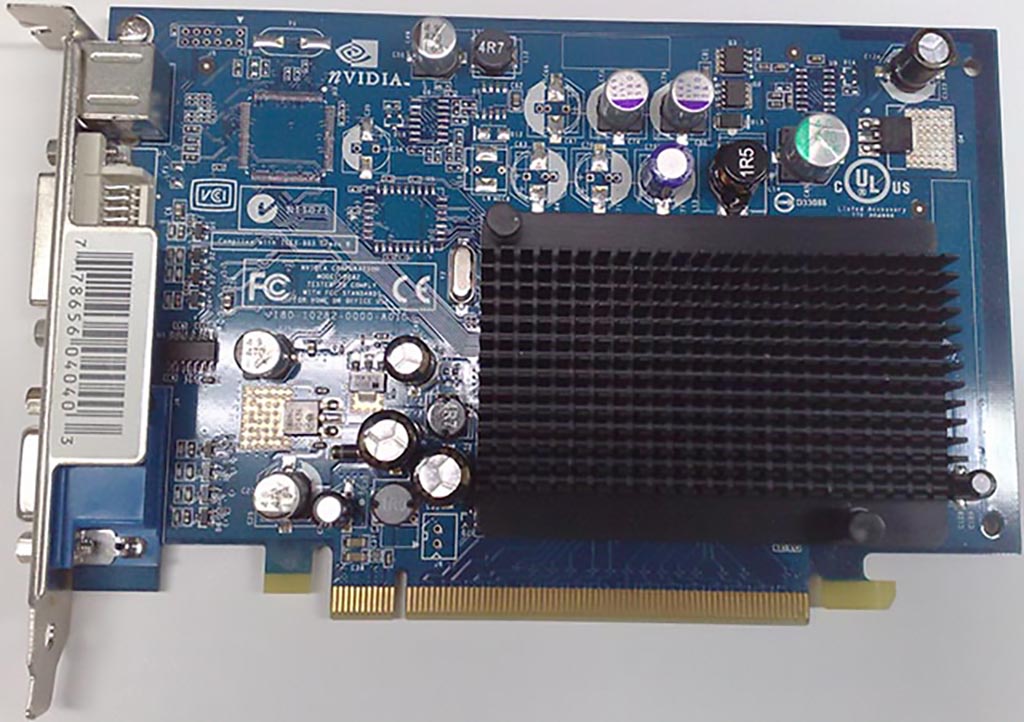Codename of the chip is NV44
110nm process (TSMC)
77 million transistors
FC packaging (flip-chip, without a metal cap)
64-bit dual-channel memory interface
Up to 64 MB DDR/GDDR-2/GDDR-3
PCI Express16x bus interface integrated into the chip
Interface conversion into APG 8x using bidirectional PCI Express<->AGP
bridge HIS
Advanced features of the system memory addressed via PCI Express to store
the frame buffer, textures, and other information traditionally stored in
local memory.
4 pixel processors, each with a texture unit with random floating point
and integer filtering (anisotropy up to 16x).
3 vertex processors, each with a texture unit, without filtering selected
values (discrete sampling)
Calculation, blending, and writing of up to 2 full (color, depth, stencil
buffer) pixels per clock
Calculation and writing of up to 4 values of depth and stencil buffer per
clock (no operations with color)
Support for a "double-sided" stencil buffer
Support for special geometry rendering optimizations to accelerate shadow
algorithms based on a stencil buffer (so called Ultra Shadow II Technology),
particularly widely used in the Doom III engine.
All necessary things to support Pixel and Vertex Shaders 3.0, including
dynamic branching in pixel and vertex processors, vertex texture fetch, etc.
Floating point filtering of textures
Floating point frame buffer (including blending operations)
MRT
2 RAMDAC 400 MHz
2 DVI interfaces (require interface chips)
TV-Out and TV-In (require interface chips)
Programmable streaming video processor (for encoding, decoding, and video
postprocessing purposes)
2D accelerator supporting all GDI+ functions
Integrated thermal and power monitoring.



